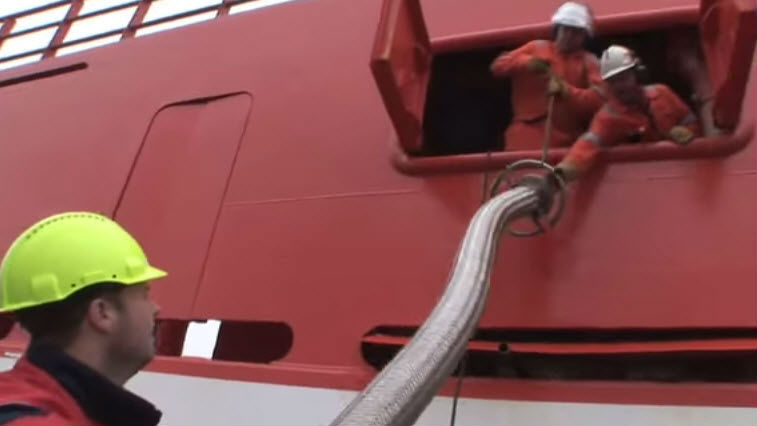Methane Slip Significant for Spark Ignition Engines

The U.S. Maritime Administration has released a report that quantifies methane slip and fugitive emissions from using LNG for vessel operations and bunkering. The findings indicate that methane slip is important when evaluating the “well-to-hull” benefits of the fuel.
The study, completed in partnership with the University of Delaware and the Rochester Institute of Technology, builds upon earlier work identifying life cycle emissions associated with LNG and is designed to provide information to guide innovation.
Methane can be emitted through methane leakage during fuel production, storage, transportation and bunkering and through methane slip, unburned methane emissions released during vessel operation via fuel combustion in the engine.
A key finding from the MARAD research is that methane slip is a very important factor that can determine whether LNG systems will lead to GHG emissions reduction or increases compared to conventional fuels. In the case of compression ignited LNG systems, methane slip is well controlled, and the research showed clear GHG emissions advantages compared to conventional fuel.
However, in the case of spark ignited LNG systems, methane slip is more significant, and can actually negate the advantages of the LNG system. In the spark ignited cases, emissions from the LNG system were higher even in cases where no bunkering leakages were assumed.
Another important finding of the research is that routine bunkering leakages can have a disproportionate impact on overall GHG emissions due to the high volume of natural gas throughput and the high global warming potential of methane. The research demonstrated that even small bunkering leakages can have significant effects.
For example, a leakage of methane of one percent in bunkering operations led to a 10 percent increase in net GHG emissions. In the compression ignition engine, this one percent bunkering leakage cut the net GHG emissions advantages of LNG from -14.9 percent benefit down to a -6.7 percent benefit compared to low-sulfur diesel fuel.
Leakage reductions in frequently recurring bunkering processes have substantial benefits on total fuel cycle GHG impacts, and there are several places in the bunkering process where leakage can be reduced. These require additional research and/or testing to improve current understanding. Although the economic value of this loss may not be significant (based on natural gas prices modeled), the environmental opportunity costs are important, states the report.
The report is available here.
